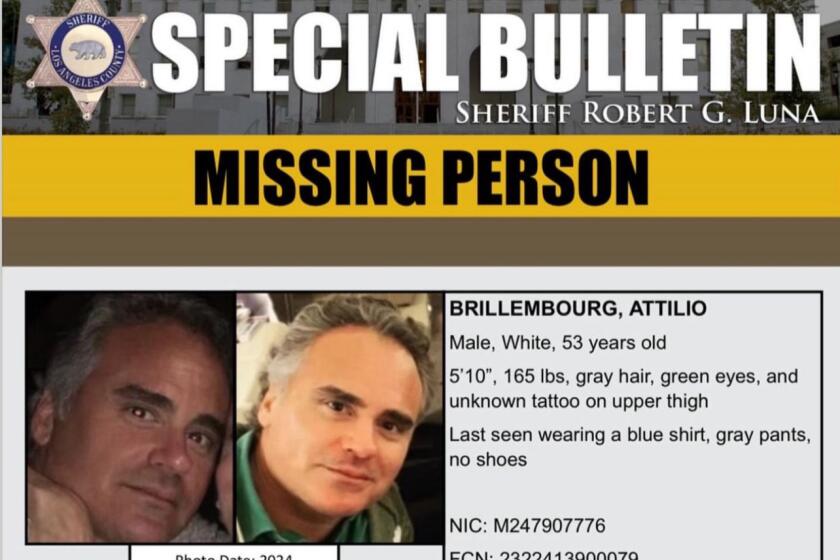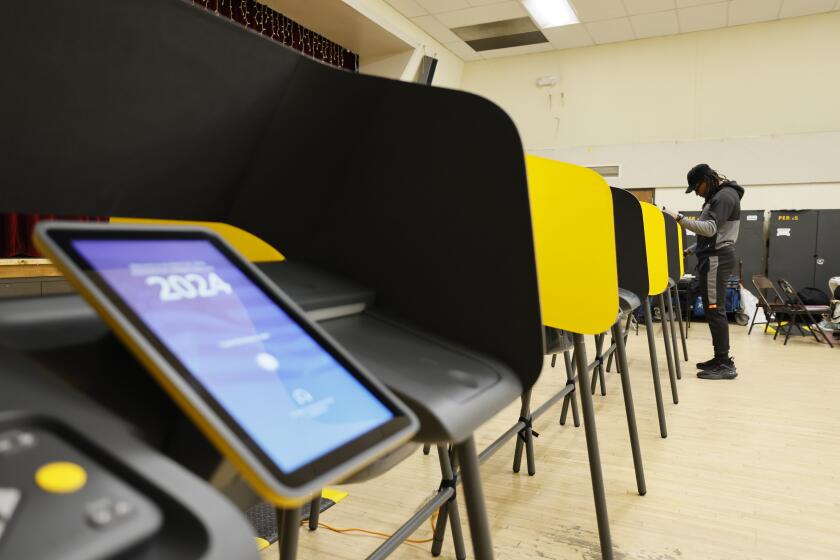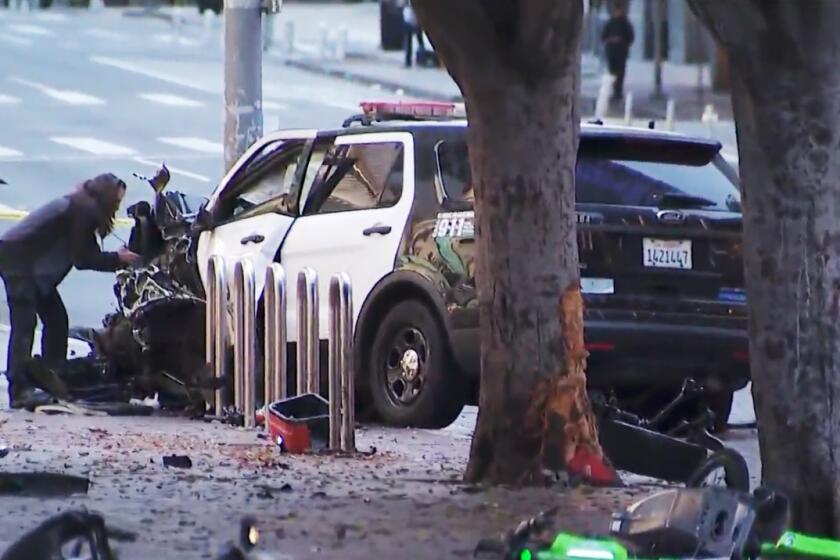Information Pleas About War Victims Strain Office : Red Cross: Cover-up rumors and bribery attempts are hampering the Glendale office’s efforts to process inquiries.
The tiny American Red Cross chapter in Glendale, best known for running blood drives and helping fire victims, has become entangled in international intrigue.
While seeking information on the whereabouts of more than 1,000 Persian Gulf War prisoners and civilians, staff members have had to fend off bribery attempts, dispel rumors that they are hiding a list of Iraqi POWs held by the allies and deny the authenticity of such a “prisoner list” stolen from the Glendale office.
Most of the requests for information come from Glendale’s large Middle Eastern immigrant community, which includes many Armenians who have relatives among the 25,000 Armenians in Iraq. Because of a breakdown in mail and telephone services, immigrants are turning to the local Red Cross chapter for help in checking on their relatives’ well-being and delivering messages to them.
The job has put additional strain on the office, which has only four full-time employees, five part-time workers and an annual budget of $400,000. By comparison, the neighboring Los Angeles chapter has almost 1,200 staff members and a $10-million operating budget.
Until recently, the chapter was using six volunteers, primarily immigrant women who had inquired about their own relatives, to help process the requests. But the office had to change its procedures last week after someone, either a visitor or a volunteer, stole a confidential list of people in the Persian Gulf that local families wanted the Red Cross to locate.
“I’ve been flooded with people coming in and demanding to see this list,” said Norge Seward, director of emergency services at the Glendale-Crescenta Valley chapter of the American Red Cross. “We’re not covering anything up. They think that I have the information, and I don’t.
“What they’re doing is passing it around in the community and saying the Red Cross has confirmation that these people are being held as POWs,” Seward said. “And they’re not. It’s delivering false hope.” She has sought help from Armenian newspapers in quashing the rumors about the list.
As a result of this incident, the office has tightened security and cut its volunteer force in half. It has begun providing one-to-one help in filling out inquiry forms only on Tuesdays and Thursdays, not five days a week.
Seward, who is overseeing what has become the nation’s busiest Red Cross inquiry service for Persian Gulf prisoners and civilians, said she empathizes with the immigrant families seeking information about their loved ones.
“They’re walking exposed nerves,” she said. “They’re so worried. They’re expecting miracles, and I’m not going to give people false hope. They think we’re keeping it a secret. My response is that if I had a list, I’d be the first to give it to them.”
Despite such denials, some people have offered money for a peek at a non-existent prisoner list or to expedite the search for a family member. But Seward said that such measures are unnecessary because “everyone’s given the same treatment.”
The flood of inquiries has pushed the local Red Cross office to the forefront of international efforts to get messages in and out of the war-torn region.
“Glendale is still in the lead,” said Rozana Olaya, program manager of the Gulf Tracing Unit at American Red Cross headquarters in Washington, D.C. “They’re way, way ahead of everyone.”
By the end of last week, the Glendale office had passed on to national officials messages that 102 Glendale-area families want delivered to relatives that they believe are prisoners of war held by allied troops or civilians cut off from other means of communication. Chicago came in a distant second, with messages from 19 families, Olaya said. Glendale’s inquiries represented almost a fifth of all requests received nationwide by the agency.
Many people are trying to get in touch with more than one relative. “We’ll have one person sending 12 messages,” Seward said.
By Tuesday the families that had visited the Glendale office had sent out messages to 1,222 people in the Persian Gulf, she said. As of that day, only 14 messages had come back.
The process is slow because the International Committee of the Red Cross had to register about 60,000 Iraqi soldiers being held in Saudi Arabia who were captured during the war. If a prisoner has relatives in the United States who want to contact him, Red Cross officials must find him and get his permission to exchange messages.
The Red Cross has also begun sending such notes to its representatives in Iraq. But these staff members were still awaiting Iraqi government permission to deliver messages from relatives in the United States.
Red Cross officials have warned family members that an exchange of messages could take months to complete.
While coping with such international demands on its resources, Red Cross workers in Glendale have also had to attend to more traditional tasks.
“In the midst of this,” said William Dutton, the chapter’s executive director, “we have our normal programs that must go on--providing aid to disaster victims, scheduling the bloodmobile and holding CPR classes.”
The chapter also must participate in a new campaign to raise $30 million nationally for the Gulf Crisis Fund, which will help war victims. Glendale’s goal in this drive is $32,100.
“Not only do we have additional expenses, but we’re being asked to raise more money,” Dutton said.
More to Read
Start your day right
Sign up for Essential California for news, features and recommendations from the L.A. Times and beyond in your inbox six days a week.
You may occasionally receive promotional content from the Los Angeles Times.






